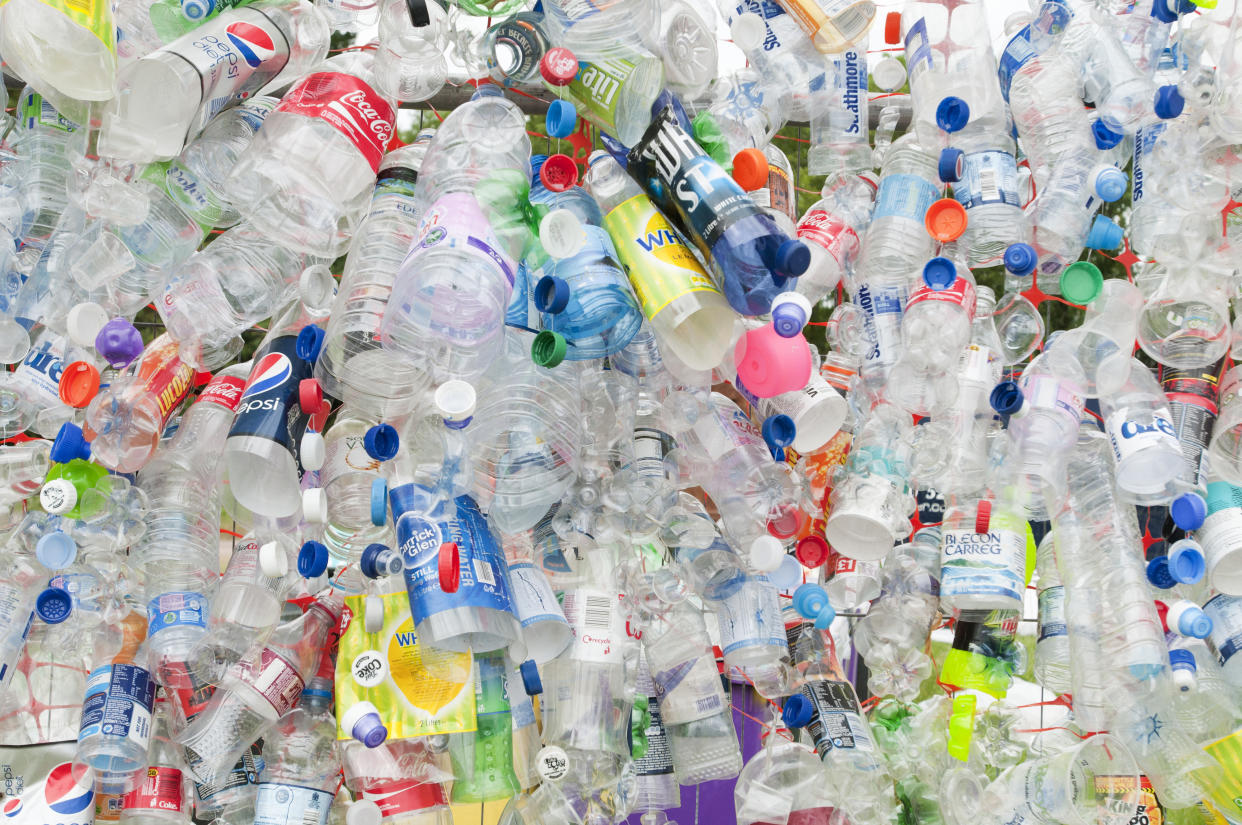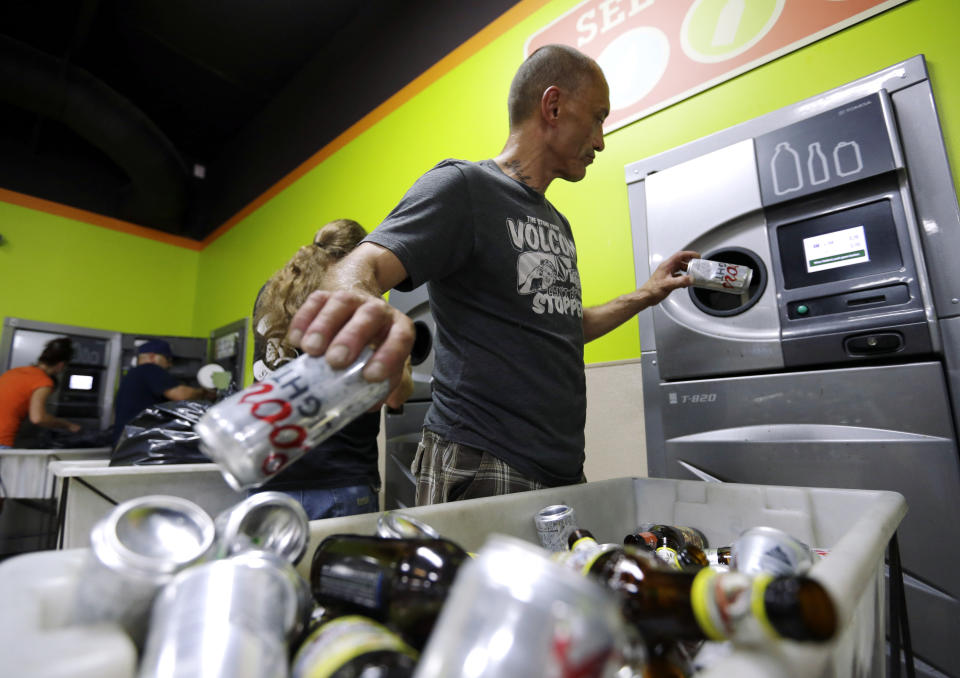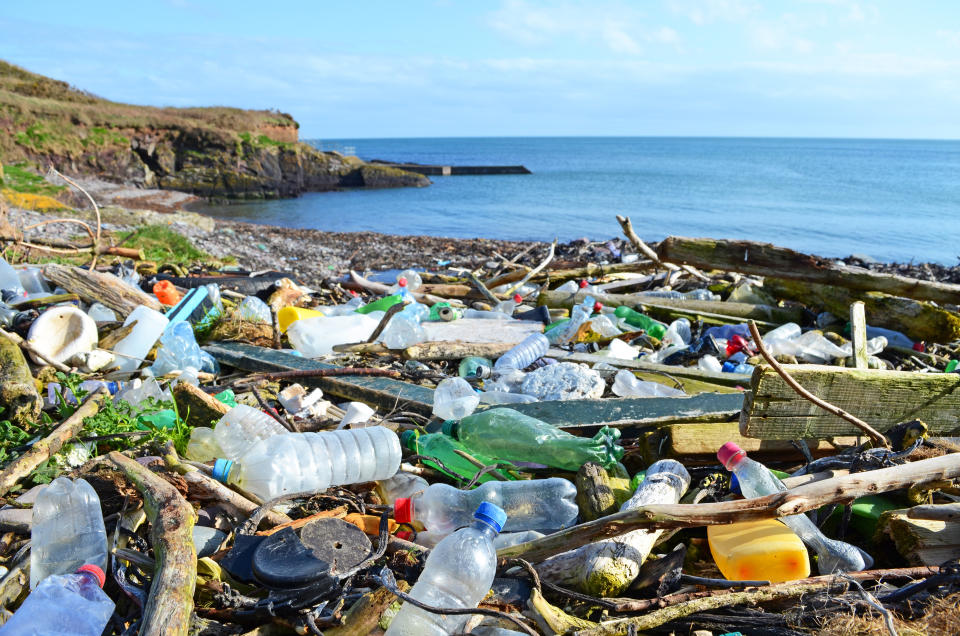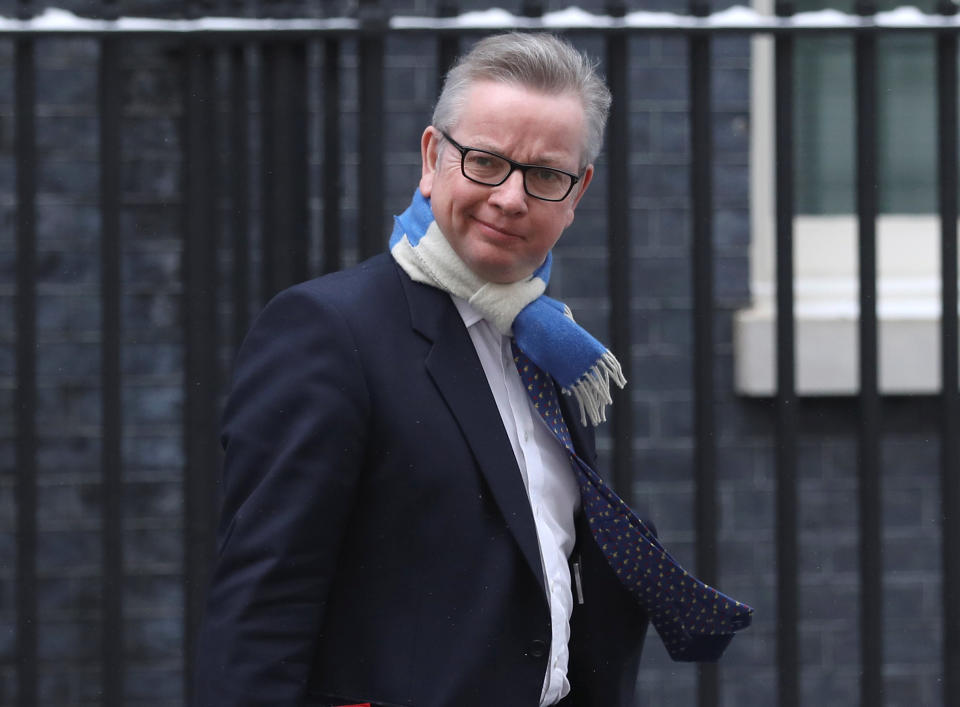Plastic bottle deposit return scheme gets green light - so how could it work?

Shoppers in England could soon be paying a deposit when they buy a bottle of water or can of fizzy pop.
Environment secretary Michael Gove confirmed ministers would introduce a deposit return scheme for single use drinks containers – subject to a consultation.
Gove said: “We can be in no doubt that plastic is wreaking havoc on our marine environment – killing dolphins, choking turtles and degrading our most precious habitats.
MORE: Plastic tax could see disposable coffee cups, chewing gum and takeaway boxes hit by levy
“It is absolutely vital we act now to tackle this threat and curb the millions of plastic bottles a day that go unrecycled.”
How big is the problem?
UK consumers use an estimated 13 billion plastic drinks bottles a year, but more than three billion are incinerated, sent to landfill or end up as litter in towns, the countryside and the seas.
Currently, just 43% of these plastic bottles sold each year in the UK are recycled, and 700,000 are littered every day.

What has been proposed?
All drinks containers in England, whether plastic, glass or metal, will be covered by a deposit return scheme (DRS), the government has announced.
Similar schemes operate in 38 countries – and Scotland proposed its own DRS plans last September.
Fees will most likely vary depending on the size of the bottle or can and many DRS use “reverse vending machines” to automate the return.
MORE: Iceland vows to go plastic-free on own brands within 5 years
These machines could be introduced in supermarkets up and down the country where shoppers ‘post’ their bottles and cans in return for their deposit.
Germany introduced similar schemes in 2003 and now 99% of plastic bottles are recycled.

What level of fees will be set?
Some countries already have deposit return schemes which charge an upfront deposit on drinks containers, ranging from 8p in Sweden to 22p in Germany, that is redeemed when the empty bottle or can is returned.
In Norway, consumers pay a deposit of about 10p to 25p, depending on the size of the bottle. The machine reads the barcode on the can or bottle and issues a coupon for the deposit.
MORE: UK’s shopkeepers welcome moves to extend 5p plastic bag levy
If the container still contains liquid, the machine accepts it but the consumer does not receive a deposit – instead, it is paid to the retailer as they will have to dispose of the remaining drink before the bottle can be recycled.
How much will the scheme cost to introduce?
The British Retail Consortium said that research conducted in Scotland showed it will cost £86 million to introduce there.
This is based on introducing reverse vending machines costing about £32,000 each in supermarkets.
If that’s the case, then rolling out a similar scheme across England could cost up to £1bn.

Where are the possible pitfalls?
The consultation will involve the major supermarkets, major recycling and environment pressure groups, the BRC, plastics and can manufacturers and trade bodies, as well as the public.
What isn’t clear yet is what will happen with wine bottles, for example, or large milk containers, or how easy it will be to get your money back on a bottle bought from a corner shop on the way to the train station for a day trip away.
Also, if retailers and the drinks industry is expected to pay for the introduction of reverse vending machines, and to swallow, ultimately, the cost of the deposit, how likely is it that those additional costs will be passed on to the consumer at point of sale?
The government says it will only take forward options from the consultation which demonstrate they offer clear benefits, are resistant to fraud, and where the costs to businesses, consumers and the taxpayer are “proportionate”.

 Yahoo News
Yahoo News 

